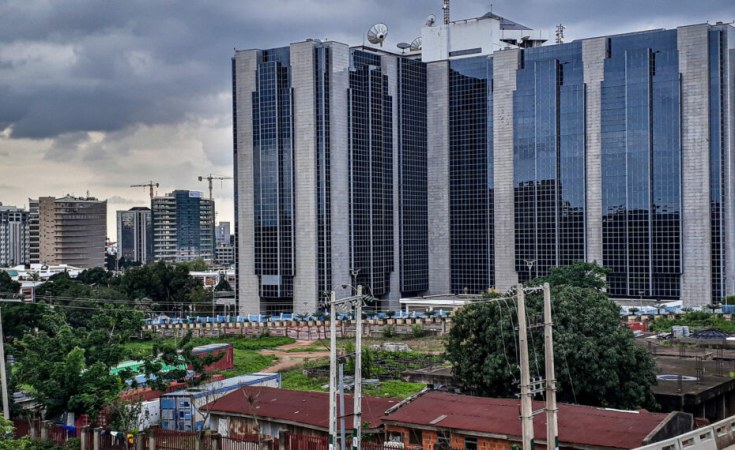The Monetary Policy Committee of the Central Bank of Nigeria Tuesday announced a significant increase in its benchmark lending rate by 400 basis points to 22.75 per cent
Economists and policy analysts have expressed concern about the recent actions taken by the Central Bank of Nigeria concerning the benchmark interest rate and other monetary policy matters in the country.
The Monetary Policy Committee of the Central Bank of Nigeria increased the benchmark interest rate to 22.75 per cent on Tuesday, as part of the move to aggressively manage the country's inflationary pressures.
Olayemi Cardoso, the governor of the CBN, on Tuesday, disclosed that the MPC voted to keep the Cash Reserve Ratio (CRR) at 45 per cent while the Liquidity Ratio was retained at 30 per cent.
According to the National Bureau of Statistics, the country's annual inflation rate jumped to 29.90 percent in January from 28.92 per cent in December 2023, primarily fueled by a continuous surge in food prices.
Paul Alaje, chief economist at SPM Professionals, said even though the monetary policy committee is doing everything possible to fight "stubborn" inflation, the rate will have a significant impact on the economy.
According to him, it is expected that the unemployment rate will rise in the coming quarters and the impact will be enormous on the overall economy.
The latest data from the National Bureau of Statistics shows Nigeria's unemployment rate rose to 5 percent in the third quarter of 2023, indicating an increase of 0.8 percent from Q2 2023 (4.2 percent).
Mr Alaje said it is obvious that there is no convergence between the fiscal and monetary authorities.
"This also has implications on slowing down the very fragile GDP growth rate that we are managing and it's obvious that while the monetary authority is interested in price and exchange rate stability as it concerns them, they are mindless of what will happen to the overall economy, thus this rate adjustment," he said.
He also said this rate may discourage people and businesses from going to the Nigerian Stock Exchange Market as it may not be safe for them.
"They will have to smell the coffee, I know in a matter of weeks, their banks will start writing them for a review of rate, and for those that want to start a business that needs funding, they will be affected by the rate as well- that is why we say when you increase rate (monetary) it will crowd out employment," he said of business owners.
The Director Centre for the Promotion of Private Enterprise, Muda Yusuf, in a statement Tuesday also said the decision of the MPC would further impact the real economy, which is already facing several macroeconomic difficulties.
"Although the decision was consistent with the typical policy response of the Central Banks globally, it failed to reckon with domestic peculiarities. The key drivers of Nigeria's inflation are largely supply-side variables and the CBN ways and means of financing.
"Over the last two years, there has been persistent monetary policy tightening, yet there has not been any significant impact on the inflationary pressures. If anything, the general price level has been continuously on the increase," he said.
He observed that the impact of monetary policy on the Nigerian economy is still quite limited, with weak transmission effects.
Mr Yusuf emphasised that in Nigeria, price levels are not significantly influenced by interest rates, as supply-side factors play a more significant role in driving inflation.
Like Mr Alaje, Mr Yusuf also reckoned that the recent increase in the rate will lead to higher borrowing costs for the limited private sectors that rely on bank loans, affecting their operational expenses, product prices, and profit margins, especially amid challenging economic conditions.
Positive Signaling
A former deputy governor of the CBN, Kingsley Moghalu, commended the CBN for the decision.
In a post on X, he said it is a necessary step to create a special, lower-cost financing channel for the real sector and small businesses, which are particularly vulnerable in the current economic climate.
"Correct move by the MPCommittee to dramatically hike the Monetary Policy Rate by 400 basis points to 22.5 per cent. The situation calls for nothing less if we are to check inflation over 12-18 months. We did the same a decade ago to bring inflation from 14 per cent to 8 per cent.
"It will hit businesses hard, but inflation is hitting harder. We must slay the inflation dragon lest it consume our economy and we head to Zimbabwe/Venezuela. The money supply MUST be reduced. Price stability must take priority before economic growth in the current situation," he said.


